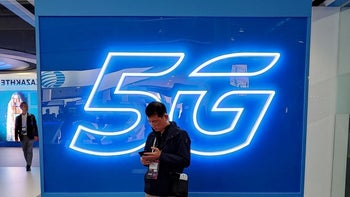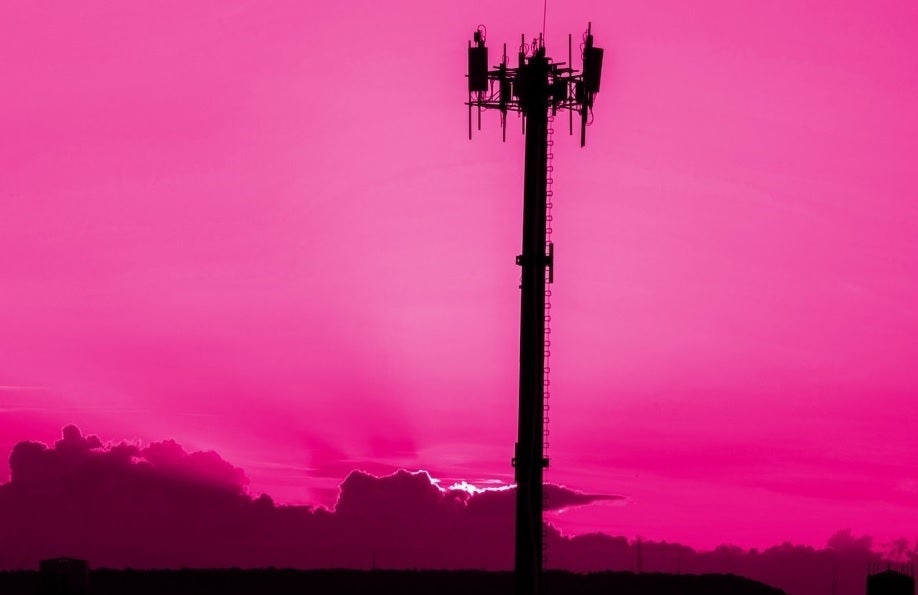Verizon, AT&T will begin use of C-band 5G service this week despite U.S. objections

Once it became obvious to Verizon and AT&T that T-Mobile had a better game plan for its 5G rollout, the two carriers figured out what they were lacking. What happened was that thanks to its acquisition of Sprint, T-Mobile picked up a ton of 2.5GHz mid-band spectrum. This was important because mid-band airwaves are not readily available in the U.S. and the characteristics of these signals allow them to travel farther than mmWave and deliver faster download data speeds than low-band.
Verizon and AT&T spent a combined $68 billion for C-band licenses to be used for 5G service
Verizon and AT&T spent over $68 billion combined to purchase licenses giving them control over mid-band spectrum in the 3.7GHz-4.2GHz range. Verizon spent over $45 billion for 3,500 licenses, nearly twice as much as the amount spent by AT&T. The latter picked up 1,600 licenses for $23 billion. But as it turns out, running 5G over C-band frequencies can cause major problems by interfering with instruments that help aircraft land in bad weather, avoid a mid-air collision, and prevent crashes.

5G C-band signals could interfere with the instruments on board a commercial aircraft
The interference could lead airlines to cancel, delay, or divert flights. In November, AT&T and Verizon said that they would delay the use of its 5G C-band frequencies until January 5th.
On New Year's Eve, U.S. aviation officials including Transportation Secretary Pete Buttigieg and FAA administrator Steve Dickson sent a letter to Verizon CEO Hans Vestberg and AT&T CEO John Stankey. The missive asked for a delay of this week's launch of 5G service in the 3.7GHz-4.2 GHz range for no more than two weeks.
During the delay, the officials would study the effects of the C-band signals on aircraft at specific airports. The CEOs of Verizon and AT&T rejected the request for a delay stating that it would be "to the detriment of our millions of consumer, business, and government customers."
Verizon and AT&T refuse to delay starting their C-band 5G service for no longer than two weeks"
The Wall Street Journal reiterated this story today repeating that Verizon and AT&T refused to delay the start of its 5G C-band service that is scheduled to start this Wednesday. The U.S. officials said that without a delay, the public would have to deal with "widespread and unacceptable disruption to air traffic as airplanes try to avoid airports covered with C-band 5G signals.
But the Journal reports that the carriers did have a counter-proposal that they sent in a letter on Sunday to U.S. officials. Based on limits imposed by French regulators, the carriers would reduce the power of their new 5G service for six months giving the carriers and the government time to study the impact that these signals have on aircraft. The two CEOs wrote in their letter that "If U.S. airlines are permitted to operate flights every day in France, then the same operating conditions should allow them to do so in the United States."
The FAA said that it is now reviewing that letter from the carriers. The regulatory agency said, "U.S. aviation safety standards will guide our next actions." Meanwhile, AT&T and Verizon say that there is no risk to passengers. In fact, when the FCC auctioned off the C-band frequencies earlier this year, it added "buffer frequencies" to the licenses being auctioned off just to prevent a C-band 5G signal from interfering with instruments in the cockpits of aircraft flying in the U.S.
The regulators responded to this by noting that more sensitive altimeters that can pick up signals beyond their usual range could mistake cellular transmissions for land. The Transportation Secretary and FAA administrator say that without a resolution to this dispute, there could be severe economic consequences. Buttigieg and Dickson wrote, "Failure to reach a solution by Jan. 5 will force the U.S. aviation sector to take steps to protect the safety of the traveling public, particularly during periods of low visibility or inclement weather."













Things that are NOT allowed: